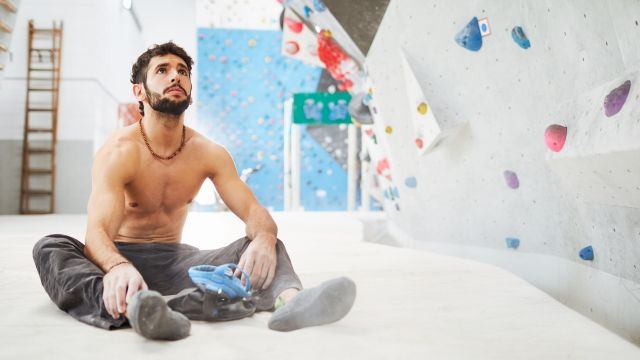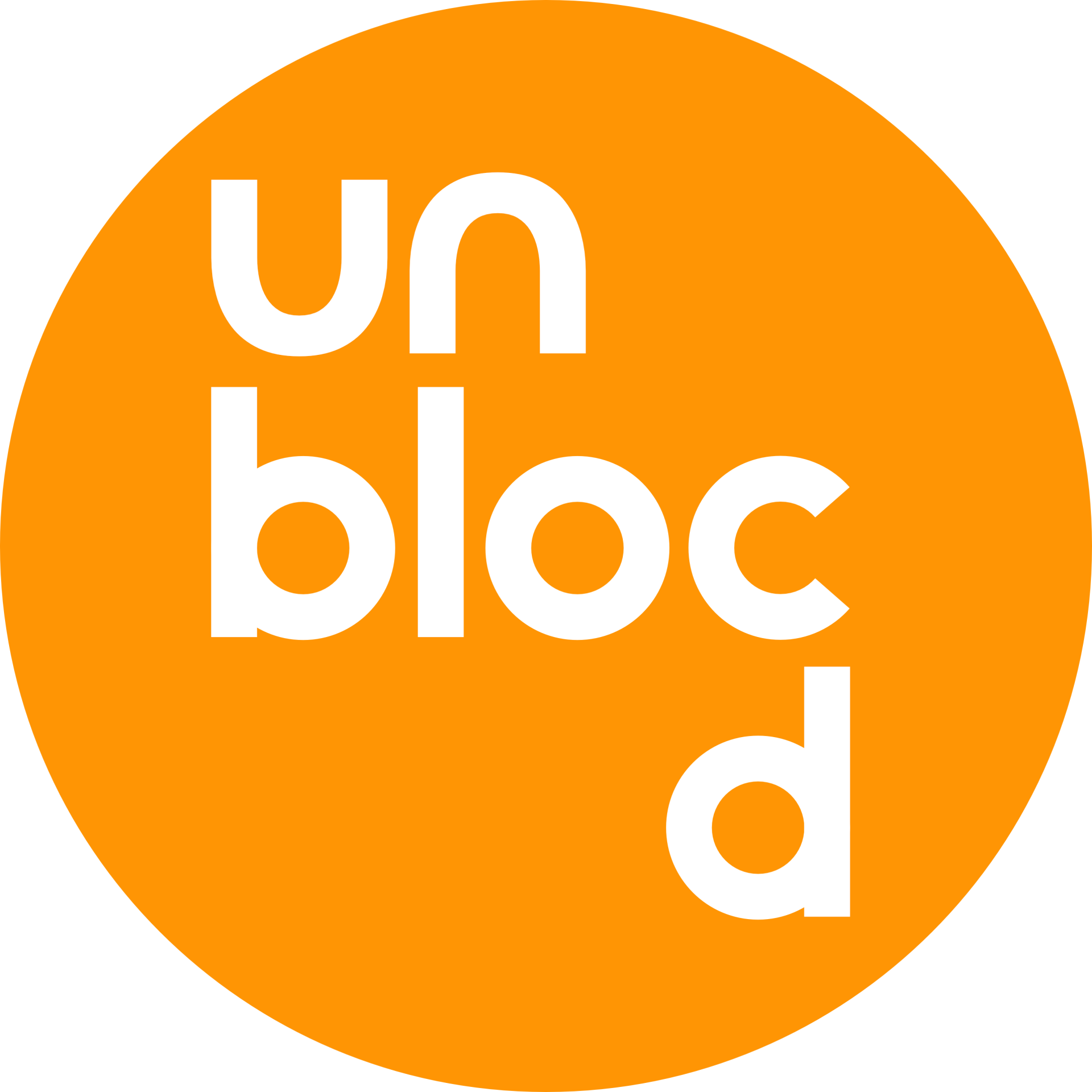
Recovery Process From Psychological Perspective
Jun 27
/
Jana Unterholzner, Sport Psychologist & PhD Student at the Medical University of Innsbruck
The injury recovery process can be long and arduous. Between the pain, the rehabilitation and the negative emotions, the journey to a full recovery often comes with obstacles and set-backs.
But here’s the good news: understanding what to expect can make all the difference. The better you know the mental landscape of recovery, the more prepared you’ll be — not just to heal, but to grow through it.
In this blog, we’ll walk you through the common mental phases of recovery — and share three powerful mental tools that can help you stay grounded, focused, and resilient throughout the process.
But here’s the good news: understanding what to expect can make all the difference. The better you know the mental landscape of recovery, the more prepared you’ll be — not just to heal, but to grow through it.
In this blog, we’ll walk you through the common mental phases of recovery — and share three powerful mental tools that can help you stay grounded, focused, and resilient throughout the process.
The Stages of Recovery
From the psychological perspective, research suggests that the process of injury recovery is similar to the grieving process. Understand your recovery better by learning about its different stages:
- Denial
- Anger
- Depression
- Bargaining
- Acceptance
In the early phases, you may think that the injury is not as serious and hear yourself think “It’s not that bad, I can still climb”. This stage is denial, a way that people can cope with the initial shock of the injury.
When people realize that the injury is more serious than they thought, they might enter the stage of anger. This stage comes with a lot of negative emotions such as frustration or irritation. However, the stage of anger can re-occur in every part of your recovery.
At some point, your questions and doubts can lead you to depression. You may experience intense feelings of sadness and a loss of motivation.
One way people can try to make sense of injury is bargaining. It's when you try to “negotiate” your way out of the situation. You might tell yourself things like, “If I just avoid crimps, I’ll be fine,” or “I’ll do twice as much rehab and bounce back quicker.” These thoughts are understandable, but they don’t always line up with what your body needs.
Eventually, you may reach acceptance. When that happens, you can accept the reality that you are injured or that the recovery process will be slower. This doesn’t mean you like being injured — but it means you’ve come to terms with it. Acceptance can give you the clarity and patience to fully engage in the recovery process.
With these stages, it’s important to remember that they aren’t linear. You might move through them in a different order, experience them with varying intensity, or cycle through them more than once. That’s completely normal.
What matters is recognizing what you’re feeling and allowing yourself to move through it.
What matters is recognizing what you’re feeling and allowing yourself to move through it.
What to Expect as Recovery Progresses
Injury recovery isn’t a straight line — it shifts depending on your progress, mood, and even your personality. While every recovery is different, research shows that many climbers go through some common mental and emotional patterns along the way. Understanding these patterns can help you make sense of your own experience and feel less alone in the process.

How Your Thoughts Can Shift Throughout Recovery
Initial reaction to the injury
- Early thoughts are often shaped by how serious the injury feels.
- It's normal to experience more distressing thoughts such as "I'll never climb at the same level again".
- These thoughts are common and tend to evolve over time.
Thoughts after the diagnosis
- Getting a diagnosis often shifts how you think about your injury.
- A less severe diagnosis can lead to relief and more hopeful thoughts like: “Maybe I’ll be back sooner than I thought.”
- A more severe diagnosis might trigger thoughts such as: “What if I can’t get back to where I was?”
- It’s normal for both hopeful and difficult thoughts to show up. The diagnosis helps you make sense of your situation — even if your thoughts remain mixed at first.
Thoughts during rehabilitation
- Rehabilitation can be frustrating and lead to doubts like "Rehab is too hard/boring" or "Is it even helping?".
- These thoughts are completely understandable, especially when progress feels slow.
- Instead of trying to push them away or letting them dictate your actions, try to notice them for what they are: just thoughts, not facts.
- Making space for these thoughts while continuing to commit to the rehab plan can help you stay on track with your recovery.
Thoughts before returning to sport
- Returning to sport may trigger anxiety and fear of re-injury.
- Worry about your injured body part if typical (e.g., is my ankle strong enough?)
- These concerns are a natural part of the final recovery.
- You can also feel confident and ready to return — that is all we wish for you!
One of the most valuable parts of recovery isn’t just getting back on the wall — it’s what you learn along the way. Many climbers come out of the process with a deeper understanding of their body, a sharper awareness of their limits and needs, and a stronger mental game. It’s not easy, but the journey can make you a more resilient and mindful climber in the long run.
Support Systems That Help You Heal
While the way you think can change a lot throughout the recovery process, many climbers find that seeking social support can be a valuable part of healing. Support can come from different sources, such as your family, friends, climbing buddies or professionals, like physios and coaches. This support can play a meaningful role at various stage of recovery:
Recovery isn't just physical, it's emotional and social too. Leaning on the support of friends, family, climbing community, and pros can make a big difference at every stage of your recovery. Not everyone reaches out in the same way but feeling connected can help.
- Your friends and family can be there to help you when receiving the diagnosis and when going through rehabilitation.
- Your climbing community can provide you with comfort and motivation to push through your rehabilitation.
- Your social social support system assist you during doubts and caution when returning to sport.
Recovery isn't just physical, it's emotional and social too. Leaning on the support of friends, family, climbing community, and pros can make a big difference at every stage of your recovery. Not everyone reaches out in the same way but feeling connected can help.
The Emotional Rollercoaster of Injury Recovery
During recovery, your emotions will be like a rollercoaster - up, down, up and down. If you want to know more about emotional changes during injury recovery, check out this Unblocd blog about the emotional and identity impact of injuries!
3 Mental Tools That Help You Heal Smarter
Now that you know more about the process of recovery, what skills can actually help you to recover better and faster? Here is a list of mental skills that will help you achieve a healthier recovery:
Take Control by Understanding What’s Happening
One important part of injury recovery is to understand what is happening to you, your own injury, and what is required for recovery. By knowing more and understanding more about your injury and the recovery process, you can help reduce the uncertainties that you have.
The good thing is, you are already working on that skill by reading this blog! Keep researching and learning more about your situation. You can have a look at the basic anatomy of the injury, what changes the injury can cause, which rehabilitation methods will work or how long you are expected to be injured for.
Feel It, Don’t Fight It: Healthy Ways to Manage Tough Emotions
As you know, injury recovery is a roller coaster of emotions. You might hit very high levels of sadness, anger or frustration at different points. The key is to deal with your emotions in a healthy way. Strong emotions are part of this process — and it’s okay to feel them. But if certain feelings start to feel overwhelming or get stuck, it might help to find ways to create space for them or talk about them. Focusing on managing your emotions and feeling them in control and in healthy amounts can help your recovery.
To help you process your emotions, you can keep a journal where you write about your thoughts and emotions during the injury recovery process. You can also consider the following questions:
- What has been most difficult for you about your injury?
- What are the things you miss the most about your sport?
- What activities or moments can you still enjoy right now, even with your injury?
Alleviate Your Symptoms: Relaxation and Pain Management
One important skill to support your injury recovery process is relaxation. Be it for the pain or for anxious moments, learning to relax can help you manage the pain and the anxious thoughts.
Try and learn a breathing method that suits you. The 4-7-8 breathing method consists of inhaling for 4 seconds, holding your breath for 7 seconds and exhaling for 8 seconds. Try different techniques and see which one works best.
What About Your Recovery?
Before you finish reading, take a moment to check in with yourself:
- Where am I right now in my recovery journey?
- How am I handling the emotions that come with it?
- Who can I reach out to for support, and how can I build a strong network around me?
Remember, recovery is rarely a straight line. It’s a personal, often challenging process full of ups and downs.
But it’s also an opportunity — a chance to learn more about yourself, adapt with resilience, and come back stronger, wiser, and more connected to your body and mind than ever before.
Your comeback story starts here.
But it’s also an opportunity — a chance to learn more about yourself, adapt with resilience, and come back stronger, wiser, and more connected to your body and mind than ever before.
Your comeback story starts here.
Copyright ©2024
Oops! This Feature Isn't Available Yet.
We're sorry, but this feature is still in development. However, we'd love to keep you in the loop!
Leave your email below and we'll notify you as soon as Unblocd goes live.
Leave your email below and we'll notify you as soon as Unblocd goes live.
Thank you!

